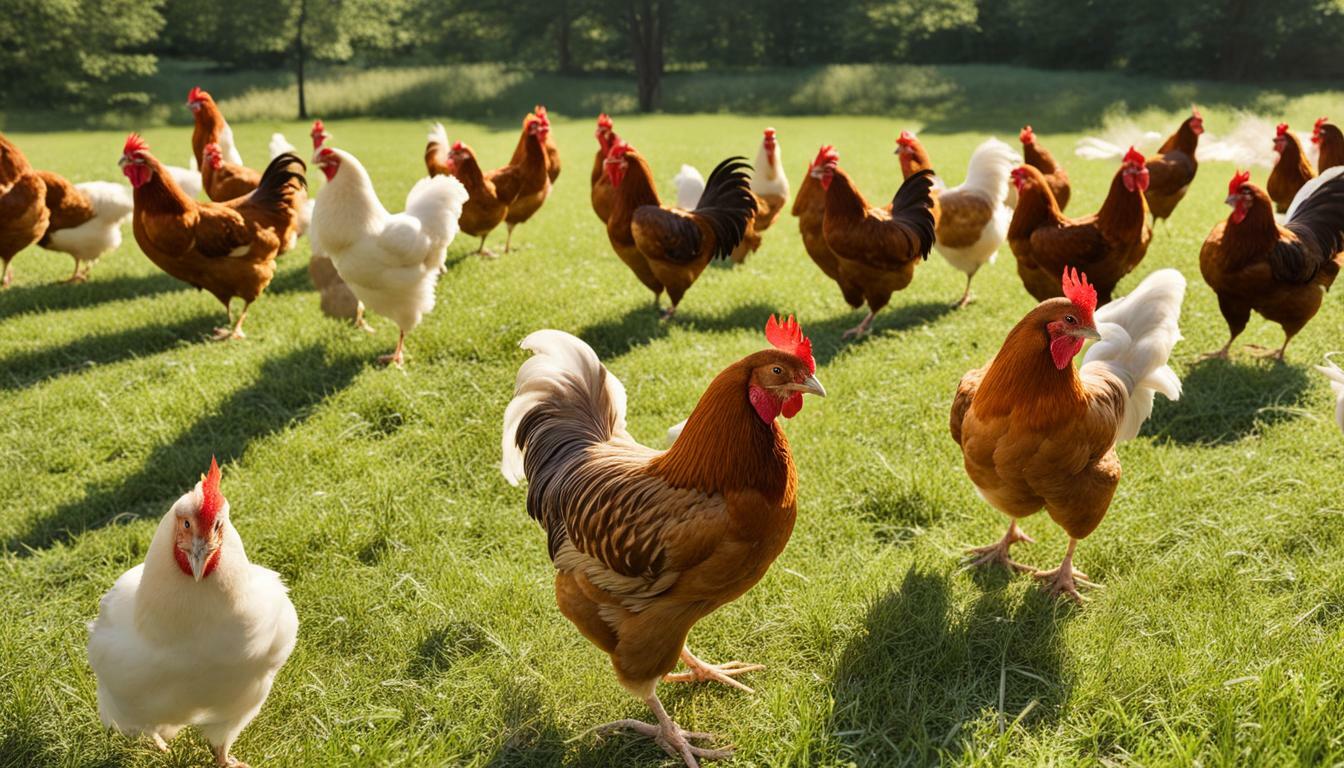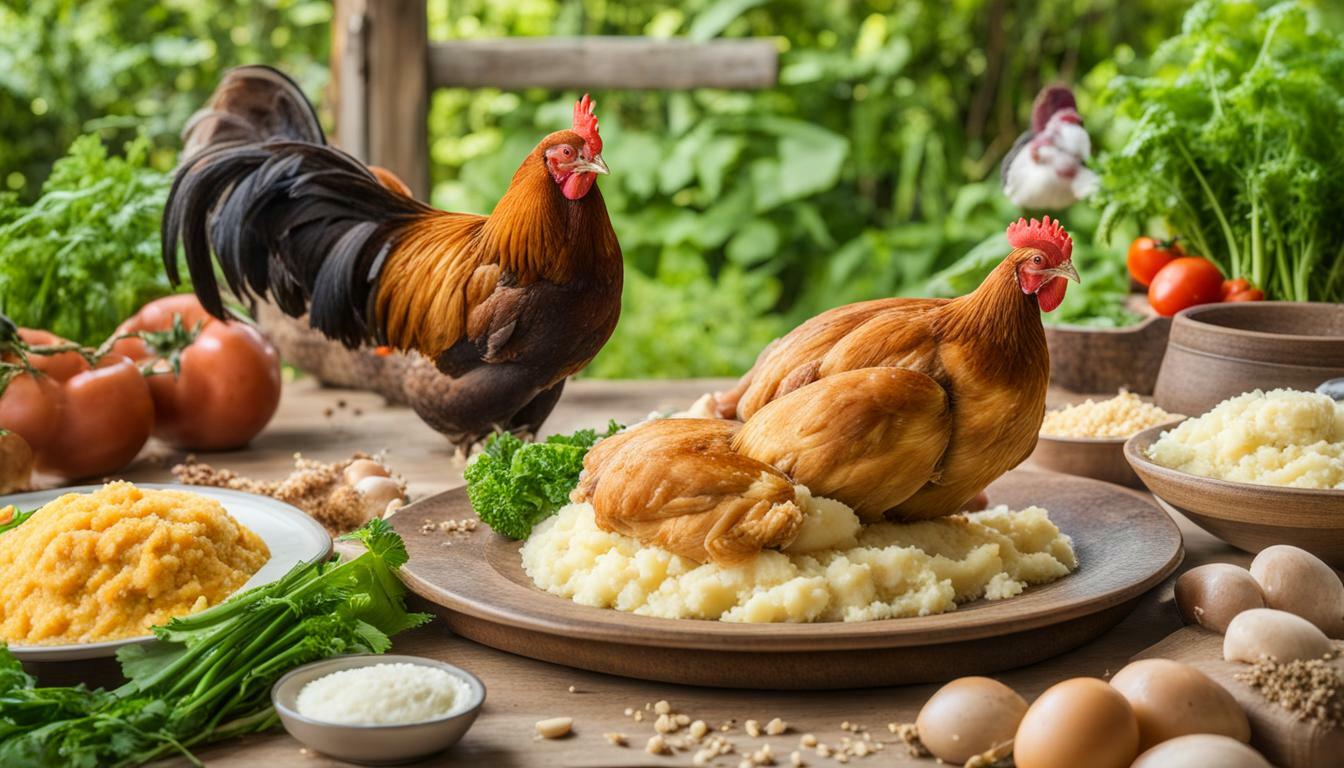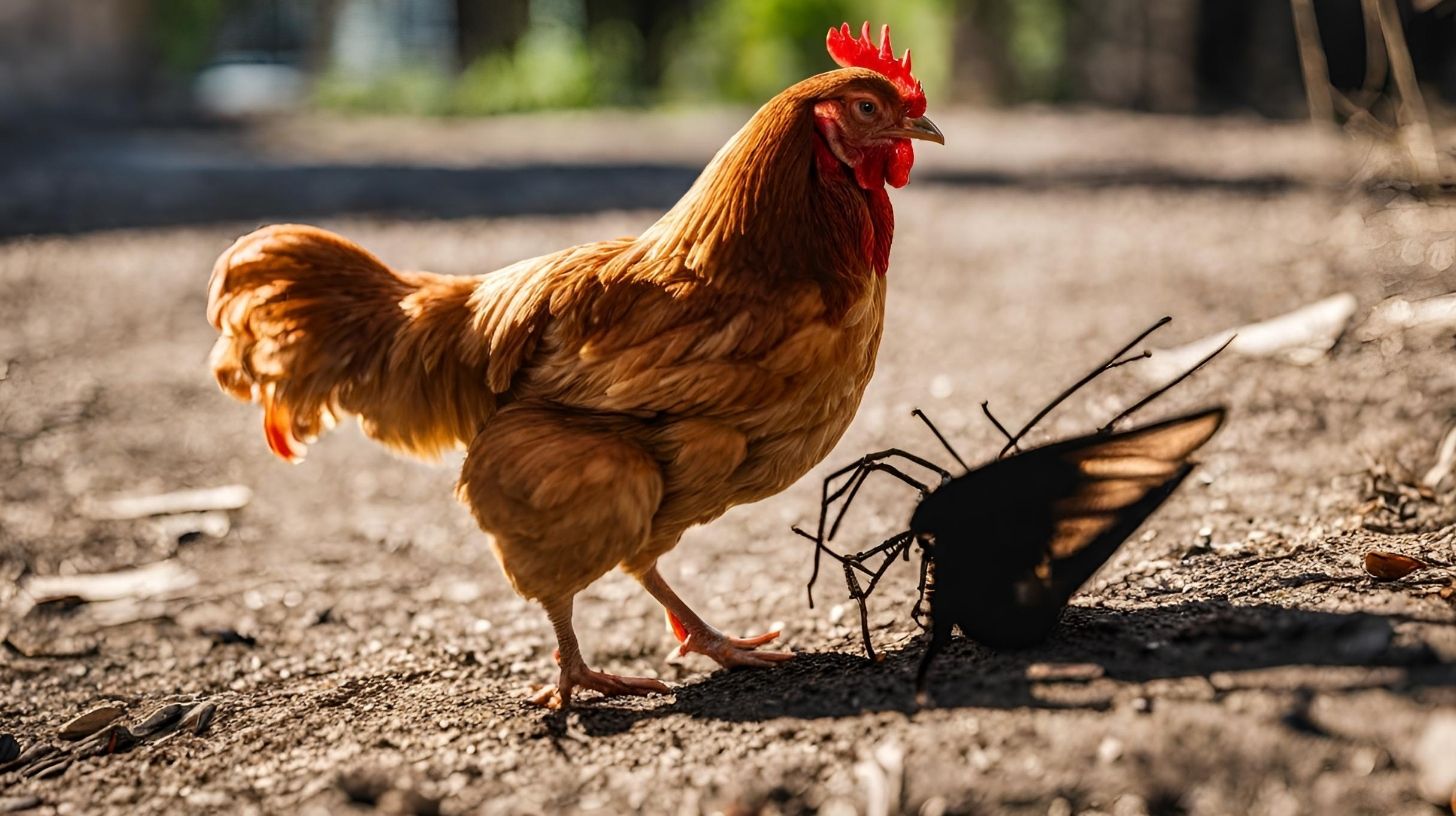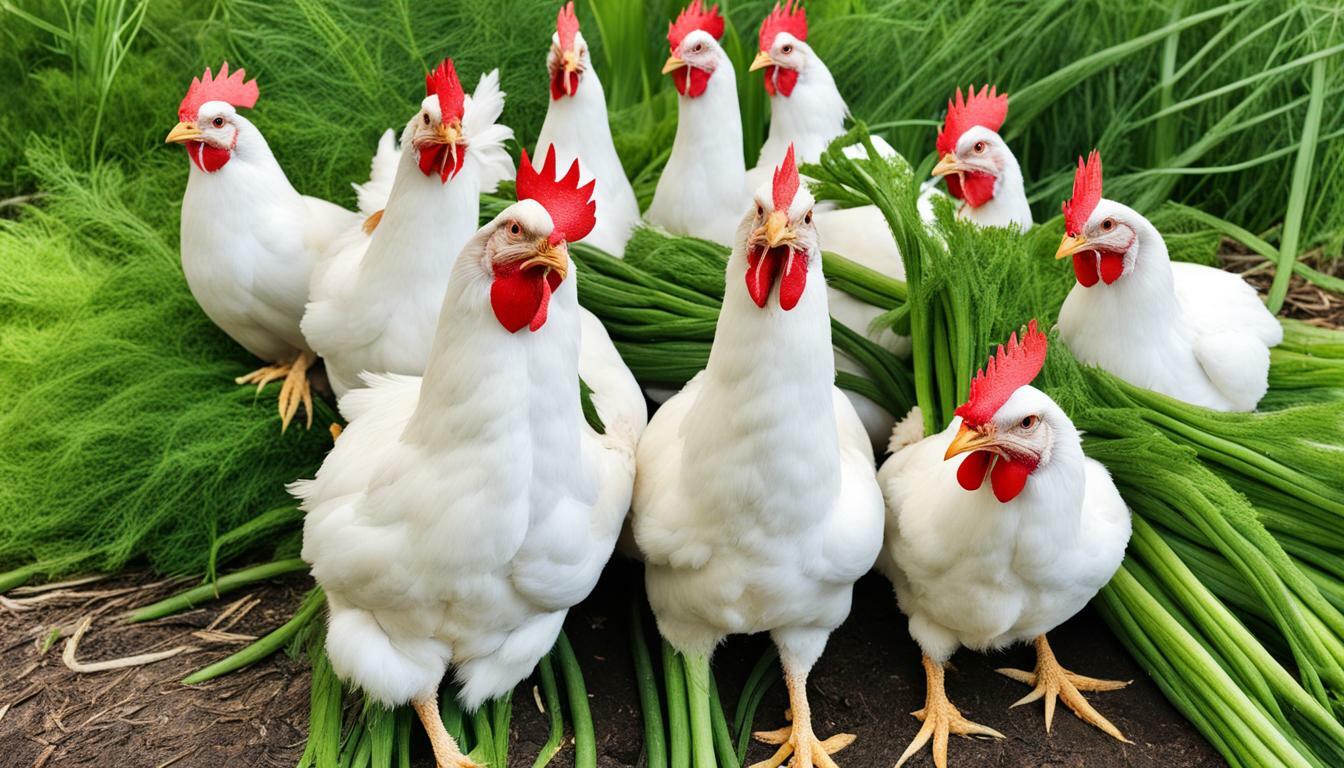Can Chickens Eat Safflower Seeds? Find Out Now!

Table of content:
- Are Safflower Seeds Safe for Chickens?
- What Are the Benefits of Feeding Safflower Seeds to Chickens?
- How Much Safflower Seeds Can Chickens Eat?
- Should Safflower Seeds Be Fed to Chickens as Treats or as Part of Their Regular Diet?
- Do Safflower Seeds Provide Protein and Fat for Chickens?
- Can Too Many Safflower Seeds Be Harmful to Chickens?
- Are There Any Risks Associated with Feeding Safflower Seeds to Chickens?
- Do Chickens Like the Taste of Safflower Seeds?
- Is It Okay to Feed Chickens Unhulled Safflower Seeds?
- Final Thoughts
Safflower seeds are a common treat for backyard chickens. But can chickens eat safflower seeds, and are they safe? This article will cover everything you need to know about feeding safflower seeds to chickens.
Are Safflower Seeds Safe for Chickens?
Safflower seeds are generally considered safe for chickens to eat. In moderation, safflower seeds provide beneficial nutrition without toxicity.
Some key facts about the safety of safflower seeds for chickens:
- Safflower seeds are not known to contain toxins or compounds poisonous to chickens. They are not on lists of unsafe treats.
- Safflower seeds provide protein, fat, and fiber. The nutritional profile supports chicken health.
- The high oil content could cause loose droppings if overfed. But in moderation, this is not a concern.
- Safflower hulls are fibrous. Many chicken owners prefer to feed hulled safflower seeds. But hulls do not make safflower seeds toxic.
- Limited research is available on safflower seeds specifically. But related seeds like sunflower seeds have been safely fed to chickens for many years.
As long as safflower seeds are fed in moderation as part of a balanced diet, they appear to be a safe treat for backyard chickens. Monitor your flock when introducing new treats and discontinue if any signs of illness occur.
What Are the Benefits of Feeding Safflower Seeds to Chickens?
Safflower seeds provide many benefits when included as occasional treats for chickens:
Protein and Fat
- Like sunflower seeds, safflower seeds are high in protein and fat content. This makes them an excellent source of concentrated energy.
- The omega-6 fatty acids in safflower seeds support skin and feather health.
- The protein in safflower seeds contains essential amino acids that chickens need for growth and egg production. This includes methionine, lysine, and arginine.
- When fed in moderation, the fat and protein in safflower seeds can help round out the diet of backyard chickens with free access to grass and insects.
Fiber
- Safflower seeds provide insoluble fiber which supports digestion in chickens.
- The fiber content creates a feeling of fullness which can supplement free-range foraging.
Vitamins and Minerals
- Safflower seeds contain B vitamins like niacin, folate, thiamine, and riboflavin. These support metabolic functions.
- Minerals in safflower seeds include iron, magnesium, phosphorus, copper, manganese, and zinc. These support bone health, egg production, and enzyme functions.
- As an occasional treat, safflower seeds help provide vitamins and minerals. They should not replace complete chicken feed formulas, however.
Fun Foraging Activity
- Chickens enjoy the process of foraging and pecking for treats. It provides mental stimulation which reduces boredom and stress.
- Scattering safflower seeds in straw or leaf litter recreates natural foraging behaviors. This provides enrichment for confined backyard chickens.
- The fun activity and challenge can strengthen the flock dynamic and reduce aggressive pecking.
When fed in moderation, safflower seeds are a safe, nutritious, and fun supplemental treat for backyard chicken flocks. They provide protein, fat, fiber, vitamins, minerals, foraging enrichment, and more.
How Much Safflower Seeds Can Chickens Eat?
While safflower seeds provide benefits, overfeeding can cause issues. Use moderation when offering safflower seeds to backyard chickens.
As general guidelines:
- Limit treats like safflower seeds to 10% or less of the total diet. The majority of a chicken’s food should still come from complete feed.
- For a daily treat, around 1-2 tablespoons of safflower seeds per hen is appropriate. Adjust amounts based on your chickens’ weights and egg production levels.
- Chickens with free access to scraps and treats may eat only 1-2 safflower seeds at a time when free ranging. Monitor their full dietary intake.
- Offer safflower seeds in a scattered pattern that encourages natural foraging behaviors. Don’t pour piles for chickens to binge eat.
- Look for signs of loose droppings, weight gain, or boredom with treats. Decrease or discontinue safflower seeds if these occur.
- Some owners reserve safflower seeds for occasional treats only 1-2 times per week. This prevents chickens from filling up on low-nutrient seeds rather than complete feed.
With a balanced diet and moderation, backyard chickens can safely enjoy safflower seeds. Observe your flock and adjust amounts to maintain ideal nutrition and health. If questions arise, consult your veterinarian.
Should Safflower Seeds Be Fed to Chickens as Treats or as Part of Their Regular Diet?
Most chicken owners use safflower seeds as occasional treats rather than regular feed ingredients. Here are some things to consider:
As Treats
- Feeding safflower seeds as treats allows you to control and monitor consumption. Overfeeding risks can be minimized.
- Chickens enjoy the foraging enrichment of searching for scattered safflower seeds as a supplement to their usual habitat.
- Offering seeds as treats prevents boredom with the same feed ration day after day.
- Safflower seeds can be used strategically as training rewards during handling and pen training.
As Feed
- Chicken owners report safflower seeds seem to have a positive impact on feather condition when added to the regular diet. However, research is lacking.
- Some owners add small amounts of safflower seeds to their homemade feed mixes for added fat and protein. This mirrors wild chicken diets more closely.
- If your chicken’s free range in areas without adequate protein sources, safflower seeds in regular feed may provide missing amino acids.
- Check that vitamins and minerals remain balanced if substituting safflower seeds for other feed ingredients. Consult your veterinarian if needed.
For most backyard chickens, safflower seeds are best reserved for occasional treats. Their small size and hulls make them difficult to use exclusively in feed. Monitor your flock and adjust as you see dietary needs arise. Safflower seeds can be a helpful supplement in moderation.
Do Safflower Seeds Provide Protein and Fat for Chickens?
Yes, safflower seeds are a very good source of protein and fat for chickens:
- Safflower seeds contain about 20% protein by weight. This protein is high in the essential amino acids lysine, tryptophan, and sulfur-containing amino acids.
- The protein in safflower seeds is moderately digestible for chickens, though less than some other protein sources.
- Safflower seeds contain 30-40% fat by weight. This is predominantly linoleic acid, an omega-6 fatty acid. Omega-6 fats support skin and feather health.
- The high fat content makes safflower seeds more concentrated in calories than grains. This provides quick energy.
- For backyard chickens that supplement feed with foraging, the added fat and protein of safflower seeds can help round out the diet.
- Chicken feeds are typically grain-based and lower in fat. Safflower seeds can offset the low ratio of omega-6 to omega-3 fats that results.
- Always provide clean water when feeding high fat treats like safflower seeds. Supporting digestion is important.
In moderation, safflower seeds are a valuable source of additional protein and fat for backyard chickens. Monitor your flock for signs of weight issues if overfed. When used as occasional treats, safflower seeds can safely boost dietary protein and healthy fats.
Can Too Many Safflower Seeds Be Harmful to Chickens?
Feeding chickens too many safflower seeds can potentially lead to some health issues:
Weight Gain
- With around 40% fat by weight, safflower seeds are very high in calories. Overfeeding risks obesity.
- Chickens tend to preferentially eat calorie-dense foods like safflower seeds when available. They may overconsume fat and calories.
- Monitor your chickens’ body condition when feeding high fat treats. Limit safflower seeds if weight gain occurs.
Digestive Upset
- The high oil content of safflower seeds can cause loose droppings if overfed.
- Chicken digestive systems are not optimized to process large amounts of fat and oil.
- Limit safflower seeds to occasional treats. Stop if you notice diarrhea or digestive upset.
Nutritional Imbalances
- While safflower seeds provide protein, fat, and some micronutrients, they do not contain a complete nutritional profile.
- Chickens filling up on safflower seeds may eat less of their regular feed. This risks deficiencies.
- Monitor intake of complete feeds if safflower seeds are overfed as treats. Ensure balanced nutrition is maintained.
Reduced Foraging
- Allowing continuous access to calorie-dense safflower seeds reduces chickens’ motivation to forage on grass, insects, and other foods.
- Natural foraging provides balanced nutrition and enriches the chickens’ environment. Overfeeding safflower seeds can risk boredom.
- Use safflower seeds strategically for periodic enrichment rather than constant access treats.
With any treat, moderation is key for chicken health. Monitor your flock and adjust safflower seed amounts based on weight, droppings, feed intake, and energy levels. Consult your veterinarian with any concerns.
Are There Any Risks Associated with Feeding Safflower Seeds to Chickens?
There are a few potential risks to consider when feeding safflower seeds to chickens:
Choking Hazard
- Whole safflower seeds may potentially pose a choking risk, especially to smaller birds like bantams.
- Consider crushing safflower seeds before feeding to reduce the choking risk.
- Alternatively, look for hulled safflower seeds which are smaller in size.
Fatty Liver Disease
- Overfeeding high fat foods like safflower seeds has been associated with fatty liver hemorrhagic syndrome in laying hens.
- This disease causes excessive fat deposition in the liver, which can ultimately lead to liver rupture and death.
- Prevent this by limiting safflower seeds to occasional treats in moderation. Do not overfeed.
Loose Droppings
- The oil in safflower seeds may cause temporary loose droppings or diarrhea if fed in excess. Reduce feeding amounts if this occurs.
Crop Impaction
- Dry, hulls or whole seeds that are gorged on quickly can potentially get compacted in the crop.
- Prevent this by scattering small amounts to encourage natural foraging behaviors. Avoid allowing chickens to engorge.
Nutritional Imbalances
- Replacing too much complete feed with high calorie safflower seeds could lead to nutritional deficiencies over time.
- Periodically monitor flock health and watch for signs of deficiency if feeding high amounts of safflower seeds.
With proper moderation, precautions, and monitoring, these risks can be avoided. In general, safflower seeds are a safe supplemental treat for chickens when fed wisely.
Do Chickens Like the Taste of Safflower Seeds?
In general, backyard chickens find safflower seeds to be a tasty treat! Here are some signs that chickens enjoy eating safflower seeds:
- Chickens will preferentially eat safflower seeds when offered, often over other options like corn or wheat.
- Chickens appear excited and delighted when they discover scattered safflower seeds in their environment. They may run over quickly and begin pecking eagerly.
- Chickens digest safflower seeds rapidly. This suggests they find it palatable and appealing.
- The high fat, protein, and calorie content of safflower seeds is naturally attractive to chickens. This fat was limited in the diets of their jungle fowl ancestors.
- Owners report their chickens become very engaged and stimulated when given safflower seeds as foraging activities. Their interest doesn’t seem to decrease over time.
- Some chickens learn to take safflower seeds from their owners’ hands gently. This shows they associate the seeds with a positive experience.
- Broody hens quickly leave their nests when safflower seeds are used to entice them off. They are highly motivated by the treatment.
Of course, taste preferences can vary between individual chickens. But safflower seeds do appear to tick all the boxes for an appealing treat for most backyard chickens based on their natural nutritional needs and foraging behaviors. Their excitement is clear whenever safflower seeds come out!
Is It Okay to Feed Chickens Unhulled Safflower Seeds?
Unhulled safflower seeds have tough outer hulls surrounding the seeds. While not toxic, these fibrous hulls are harder to digest. Here are some considerations when feeding unhulled seeds:
- Unhulled safflower seeds provide additional insoluble fiber. This may support digestion when fed occasionally. However excess fiber can also reduce feed efficiency.
- The sharp points and ridges of hulls may irritate the crop and intestinal tract if eaten in large quantities.
- Small pieces of hull may accumulate in the gizzard over time, requiring careful monitoring.
- The hulls make the seeds larger and more difficult to swallow. This increases the choking risk compared to hulled seeds.
- Chickens spend more time and effort shelling and ingesting the hulls to access the meaty inner kernel.
- Chicken owners report more intact seeds and hull fragments in droppings when feeding unhulled seeds. This suggests reduced digestibility.
Many chicken owners prefer feeding hulled safflower seeds:
- Hulled seeds are smaller, easier, and faster for chickens to eat, and reduce choking risk.
- The protein and fat content is more digestible without tough outer hulls.
- Smaller amounts can be fed to deliver the same nutrition.
Either hulled or unhulled safflower seeds can be fed to chickens safely in moderation. Know that unhulled seeds provide more insoluble fiber but are more difficult to digest. Weigh the benefits based on your flock’s needs.
Final Thoughts
When used in moderation as part of a balanced diet, safflower seeds can be a fun, nutritious supplemental treat for backyard chickens. Chickens enjoy searching for scattered seeds, and the extra protein and omega fatty acids support health. Avoid overfeeding, and monitor for signs of loose droppings, weight gain, or compaction issues. Both hulled and unhulled safflower seeds are generally safe for chickens. Following basic precautions and guidelines allows safflower seeds to be an excellent enrichment activity and foraging treat.
Welcome. I’m Adreena Shanum, the proud owner of this website, and I am incredibly passionate about animals, especially poultry. I founded adreenapets.com as a labor of love, stemming from my desire to share my knowledge and experiences with poultry enthusiasts worldwide.




